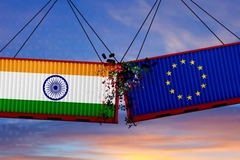The Body Shop launches refillable makeup packaging with recycled aluminum

05 Apr 2023 --- The Body Shop US is accelerating refillability by including makeup products in its “refill revolution,” aiming to take action against the global plastics crisis. The new collection is launching Peptalk Lipstick in a refillable case made from 100% recycled aluminum.
This collection is enriched with Community Fair Trade shea butter and available in 20 shades, including nudes, reds, pinks and purples.
Natura &Co, which owns the Body Shop, shares that its refill program has diverted 576 pounds of plastic – the equivalent of 12,749 bottles – from being wasted. “Globally, in 2022 alone, the brand’s refill program prevented more than half a million plastic bottles from entering the environment,” it says.

“We want our customers to understand first and foremost that they can be changemakers – and that even small individual acts, like refilling your shampoo or shower gel in a reusable container, can have a big impact on our planet,” says Hilary Lloyd, VP of marketing and corporate social responsibility at The Body Shop North America.
“The climate crisis is the greatest risk facing our future, which is why we call on beauty lovers everywhere to use their purchasing power to embrace a circular economy.”
 Globally, in 2022 alone, the brand’s refill program prevented more than half a million plastic bottles from entering the environment.“Environmental activism”
Globally, in 2022 alone, the brand’s refill program prevented more than half a million plastic bottles from entering the environment.“Environmental activism”
The Body Shop shares that refill stations are available in 800 stores globally and The Body Shop US now offers refill stations in 50% of its stores.
Last April, it scaled beauty product refill stations across the US. “The foundation of The Body Shop’s environmental activism was born out of ideas like these when our founder, Dame Anita Roddick, refilled her first bottle out of necessity in 1976,” said Lloyd.
The retailer highlights that every year, the beauty sector generates billions of pieces of plastic waste that end up in landfills or the ocean. “The Body Shop’s refill program allows every individual to help drive change because every bottle counts,” it says.
Furthermore, The Body Shop informs that the program is most popular among consumers aged 16-34, with sales of refillable products increasing by 65% throughout 2022. Convenience is the biggest challenge facing the widespread adoption of refill programs.
“Young people are cognizant of what’s at stake for the planet, which is why they’re embracing The Body Shop’s ambitious sustainability agenda,” Lloyd says.
For 2023 top packaging trends, global market researcher Innova Market Insights dubbed “Reusable revival” the fifth trend.
“Personal care and household products have had a higher adoption of refill or reusable packaging solutions, with companies capitalizing on leveraging this trend as an avenue to achieve plastics savings. This relative success could be attributed to lower consumer concerns regarding the safety of reusable packaging for non-food applications,” Akhil Eashwar Aiyar, projects leader at Innova Market Insights, shared with PackagingInsights.
Social change for circularity
The Body Shop is also addressing recycling with its Community Fair Trade partner, Plastics for Change. Last April, The Body Shop scaled beauty product refill stations across the US.
Last April, The Body Shop scaled beauty product refill stations across the US.
The beauty retailer works with waste pickers in Bengaluru, India, to remove plastics from the streets while providing livable wages and better working conditions to an informal sector that is often volatile and discriminatory.
Since The Body Shop began its partnership in 2019, Plastics for Change has collected 4,409,245 pounds of plastic waste in India, equating to 100 million plastic bottles, it shares.
Similarly, in February, Unilever’s India business unit partnered with United Nations Development Programme (UNDP) to launch an Inclusive Circular Economy project to promote the social inclusion of Safai Saathis – or waste pickers – in the country.
The project focused on the end-to-end management of plastic waste by promoting the segregation of waste at source, collection of the segregated waste and setting up material recovery facilities for recycling all kinds of plastic waste along the value chain.
By Radhika Sikaria













